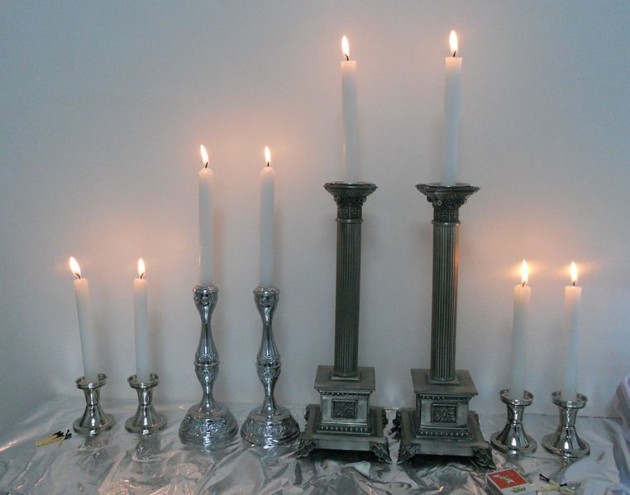
by Helene Meyers
Keeping the Sabbath Post-Hyper Cacher
 I’m writing this to honor the memory of Yohan Cohen, Yoav Hattab, Phillipe Barham, and Francoise-Michel Saada, the French Jewish men who were shopping at the Hyper Cacher in Paris and were murdered by terrorists. Note that I’m not identifying the murderers by name, nor their purported political or religious agendas; there already is and will continue to be plenty of virtual ink spilled on them. No, this is a piece of mourning and an effort to understand and articulate the profundity of the grief that many Jews around the world are feeling right now.
I’m writing this to honor the memory of Yohan Cohen, Yoav Hattab, Phillipe Barham, and Francoise-Michel Saada, the French Jewish men who were shopping at the Hyper Cacher in Paris and were murdered by terrorists. Note that I’m not identifying the murderers by name, nor their purported political or religious agendas; there already is and will continue to be plenty of virtual ink spilled on them. No, this is a piece of mourning and an effort to understand and articulate the profundity of the grief that many Jews around the world are feeling right now.
As a feminist, I’m a firm believer in the quotidian and what it signifies. Who does the dishes, who cooks the meals, who buys or bakes the bread, who talks and who is silenced, whose daily lives and deaths are worth recording speak volumes about the world and its values. Traditional Judaism also places great faith in the quotidian. What is often categorized by Jews and non-Jews alike as stringent rules and regulations (or, even less charitably, as obsessions of observance) is fundamentally a world view that the rhythms of daily life and bodies matter and should not be taken for granted. That’s why there are prayers associated with such mundane activities as awakening to a new day, going to the bathroom, baking challah, and consuming food mindfully. Regard for the seeming trifles of everyday life is one of the many places where Judaism and feminism can and do meet.
As the siege at Hyper Cacher (in English, super kosher) unfolded, those who know the rhythms of Jewish time understood that this market would be full of people preparing for the sabbath. They would be shopping for the food that would grace sabbath tables, paradoxically doing the seemingly mundane work that enables a respite from the quotidian and hopefully reaffirms the connections between the trifles of everyday life and the transcendent.
On Friday and Saturday, Jews wish one another Shabbat Shalom—a peaceful sabbath. The sabbath and peace are supposed to be inextricably linked. And at least some subscribe to Ahad Ha’am’s proverbial view that “More than the Jewish people have kept the sabbath, the sabbath has kept the Jews.” Thus the terror and violence that claimed the lives of Yohan, Yoav, Phillipe and Francoise-Michel were an attempt to sever the link between shalom and Shabbat, was an attempt to turn that which keeps the Jews into that which kills Jews. That’s the work that “an appalling anti-Semitic act” (what French President Hollande called this terror attack) intends—it tries to turn choosing a Jewish life into a death sentence.
To forestall further harm to Parisian Jewish life, French authorities closed the Rue des Rosiers, a street in the heart of the Marais district and still home to many Jewish businesses. The police also closed the Grand Synagogue of Paris. News sources reported that this is the first time since World War II that this sacred space did not welcome the Sabbath Bride. Contemporary anti-Semitism in Europe can’t help but bring with it the specter of Holocaust history, but this particular historical footnote resonates more than usual.
I began writing this on Shabbat from Austin, Texas. Obviously, the previous sentence indicates that I’m not shomer Shabbat. However, more often than not, I do keep the sabbath by meeting with a group of smart and mouthy Jewish women. We talk books and movies—many of them Jewish-themed; we share highlights from the different Torah studies that some of us have attended; we kibbitz about local and international politics; we share the joys and the trials of our everyday lives; and yes, we sometimes exchange recipes. Last sabbath, a rare ice storm kept us from meeting, but we were in close virtual touch.
So last week I kept the sabbath and chose Jewish life by counting the blessings associated with Jewish feminist community, by striving to keep at least some of the 613 commandments, and by remembering Yohan Cohen, Yoav Hattab, Phillipe Barham, and Francoise-Michel Saada, may their memory be for a blessing.
Helene Meyers is Professor of English and McManis University Chair at Southwestern University. She is the author, most recently, of Identity Papers: Contemporary Narratives of American Jewishness and is working on a book about Jewish American cinema. For Lilith, she has written “Jewish Calendar Talk,” “Yentl, Me, and 1983,” and “Memory and Teshuva: A Review of October Mourning.”